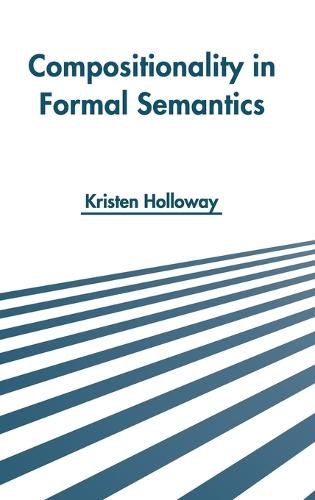Readings Newsletter
Become a Readings Member to make your shopping experience even easier.
Sign in or sign up for free!
You’re not far away from qualifying for FREE standard shipping within Australia
You’ve qualified for FREE standard shipping within Australia
The cart is loading…






The area of study which makes use of formal tools from logic and theoretical computer to study of grammatical meaning in natural languages is termed as formal semantics. Languages contain meaningful expressions built from other meaningful expressions. The principle of compositionality states that the meaning of a complex expression is determined by the meanings of its constituent expressions as well as its structure. If the lexical portions are taken out of a meaningful sentence, the remaining parts are called the rules of composition. According to the compositionality principle, every operation of the syntax should be associated with an operation of semantics that acts on the meanings of the constituents combined by the syntactic operation. From theories to research to practical applications, case studies related to all contemporary topics of relevance to this field have been included in this book. The various advancements in compositionality are glanced at and their applications as well as ramifications are looked at in detail. Researchers and students in this field will be assisted by this book.
$9.00 standard shipping within Australia
FREE standard shipping within Australia for orders over $100.00
Express & International shipping calculated at checkout
The area of study which makes use of formal tools from logic and theoretical computer to study of grammatical meaning in natural languages is termed as formal semantics. Languages contain meaningful expressions built from other meaningful expressions. The principle of compositionality states that the meaning of a complex expression is determined by the meanings of its constituent expressions as well as its structure. If the lexical portions are taken out of a meaningful sentence, the remaining parts are called the rules of composition. According to the compositionality principle, every operation of the syntax should be associated with an operation of semantics that acts on the meanings of the constituents combined by the syntactic operation. From theories to research to practical applications, case studies related to all contemporary topics of relevance to this field have been included in this book. The various advancements in compositionality are glanced at and their applications as well as ramifications are looked at in detail. Researchers and students in this field will be assisted by this book.